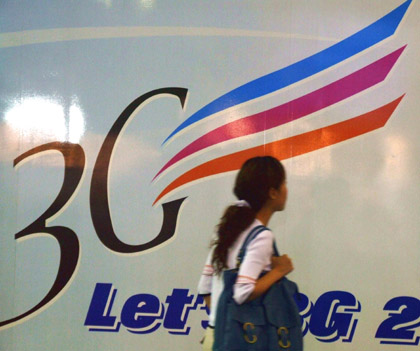Center
Nokia and Siemens to tango
By LI WEITAO (China Daily)
Updated: 2006-08-07 14:14
 |
Large Medium Small |
For Nokia and Siemens AG in China, the tie-up will have large implications. The merger of their network businesses, announced in June, will help cushion the continued delays of licensing of 3G (third generation) mobile communication technology in China.
 "With a larger scale of economies and market share, we will be able to compete better in the 2G (second generation) mobile telecoms market in China," says David Ho, president of Nokia (China) Investment Co Ltd.
"With a larger scale of economies and market share, we will be able to compete better in the 2G (second generation) mobile telecoms market in China," says David Ho, president of Nokia (China) Investment Co Ltd.
In recent years, telecom equipment makers in China have been hurt by cutbacks and the slower growth of Chinese operators' spending in 2G telecoms equipment. They have been eagerly awaiting 3G licensing which could lead to a renewed investment boom.
Yet, 3G's launch date has remained a guessing game. It has been continually delayed, putting vendors under high pressure. Now many people in the industry expect the Chinese Government to award operators with 3G licences next year.
It's something Ho won't be as concerned with if the merger goes through. "In fact, it will benefit Nokia and Siemens more if the 2G era lasts longer in China," Ho says.
Both Nokia and Siemens are strong in GSM (global system for mobile communications), a 2G standard which dominates both the global and China market.
In 2005, Nokia and Siemens owned a 19.7 per cent and 9.8 per cent share of China's GSM market, according to Beijing-based Norson Telecom Consulting. Ericsson was the largest GSM vendor with a 30.7 per cent share. Motorola owned 15.2 per cent of the market.